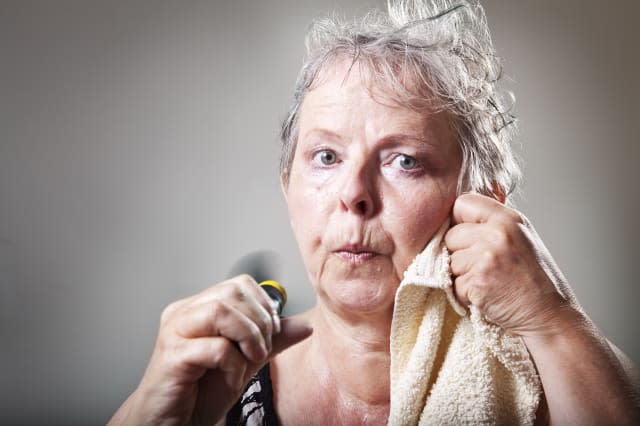What to eat to ease menopausal symptoms - and what to avoid

pic
Some women sail through the menopause, but for others the hot flushes and night sweats, dryness (including vaginal dryness) and low mood and irritability can be a real problem. While taking HRT may help, changing your diet can be a big difference. Here's what you should eat (and avoid) for a healthy menopause.
See also: Night sweats: What causes them and what you can do
See also: Breast cancer risk from HRT higher than thought
Hot flushes
As you will probably have discovered, some foods are particularly bad for triggering hot flushes. Spicy foods, coffee and chocolate, particularly when consumed at night, are notorious for causing hot flushes.
Studies show that eating a Mediterranean-style diet rich in vegetables, wholegrains, fish, and olive oil, can help to reduce hot flushes. One study of 17,000 menopausal women found that those ate a diet high in fruit, vegetables and wholegrains experienced fewer hot flushes than those who had a less nutritious diet.
Think about cutting back on the vino too. Alcohol dilates the blood vessels, which can make hot flushes and night sweats worse. As you lose fluid when you sweat, it's even more important to stay well hydrated. Sip water throughout the day, and have some ice on hand if you need to counter the feelings of the hot flush.
There's another good reason to cut back on the booze and increase the amount of fruit and vegetables you eat. Most women gain weight during the menopause, and eating more of the good stuff can stop you from packing on the pounds.
Dry skin
Falling levels of oestrogen can cause the skin to dry. If this is a problem for you, consider eating more nuts (particularly almonds) and pumpkin and sunflower seeds which contain high levels of vitamin E, as well as zinc and calcium. Together with the oils in nuts and seeds, these nutrients may help to prevent dry skin and balance hormone levels.
Low-mood and irritability
Fluctuating hormone levels combined with poor sleep caused by night sweats, can result in tiredness, low-mood and irritability. Eating foods that contain the amino acid tryptophan can help the body to produce feel-good serotonin. Opt for turkey, cottage cheese, oats and legumes.
As well as improving your mood, serotonin may also help you sleep and control your appetite. If tiredness makes you reach for sugary snacks, try to eat more protein and make sure you eat regularly throughout the day, to avoid a drop in blood-sugar levels.
Eat more phyto-oestrogens
Plant oestrogens found in certain foods act in a similar way to oestrogen, and so may help to balance menopausal hormones. Good foods include soya milk and soya flour, flax seeds, linseeds, tofu, tempeh and miso, pumpkins seeds, sesame seeds, sunflower seeds, celery, rhubarb and green beans.
Some studies have shown that eating a diet high in soy products like tofu, edamame beans and soy milk may help to ease hot flushes in menopausal women. This could explain why only 20% of women in China and Japan (who typically eat a diet high in soya products) experience hot flushes in menopause, compared to 75% of menopausal women in the West.
Keep bones strong
Women going through the menopause are advised to consume sufficient amounts of calcium, magnesium and vitamins D and K to help keep bones healthy. You should also watch how much phosphorous you eat – found in red meat, processed foods and fizzy drinks – as it can leech calcium and magnesium from bone.
Eating more alkaline foods, such as vegetables, fruits, seeds, nuts and yogurt – can help to boost calcium reserves. Foods that are rich in magnesium and boron, including nuts, apples, pears, grapes, dates and raisins, can help in the replacement of bone and thus help to reduce the risk of osteoporosis. Or consider taking a supplement formulated especially for menopausal women.
Cut back on sugar
Finally, try to cut back on how much sugar you eat. It can be tempting to turn to sweet treats as a pick-me-up, but these will cause your blood-sugar levels to spike, which can make hot flushes worse. Not only that, but the inevitable dip in blood sugar will make you tired and irritable. Eat a healthy diet and you're less likely to gain weight – and when you feel better in yourself, menopausal symptoms will be that much easier to cope with.



